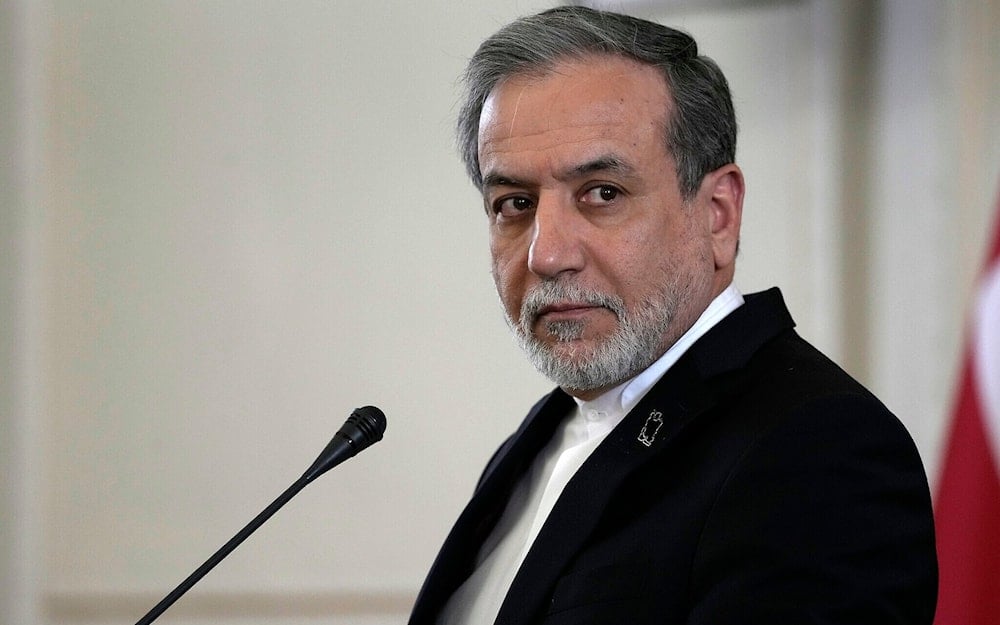Iran’s Araghchi to visit Paris for key regional, bilateral talks
Iran’s Foreign Minister Abbas Araqchi to visit Paris this week to discuss regional developments, bilateral issues, and Iran’s positions on Palestine, Lebanon, and the nuclear file.
-

Iranian Foreign Minister Abbas Araghchi at a press conference in Tehran, Iran, December 30, 2024 (AP)
Iranian Foreign Minister Abbas Araghchi will travel to Paris this week at the invitation of his French counterpart, Jean-Noël Barrot, Foreign Ministry spokesperson Esmail Baghaei announced on Monday.
Baghaei noted that the visit will follow Araghchi’s participation in the annual meeting of the Organization for the Prohibition of Chemical Weapons (OPCW) in the Netherlands.
According to Baghaei, the visit is an opportunity to clarify Iran’s positions and raise the legitimate demands of the Iranian people, including matters of bilateral concern.
Among the topics expected to be discussed are the situation of Iranian citizen Mahdieh Esfandiari, as well as a range of regional and international developments.
Baghaei emphasized that Iran’s approach to international engagement is rooted in mutual respect and the importance of using diplomatic platforms to present the country’s positions on key issues.
He added that Iran will highlight ongoing Israeli crimes in Palestine and Lebanon, in addition to addressing the nuclear file and other major international concerns.
Iran and E3
France has historically played an active role in negotiations related to Iran's nuclear program, particularly through its participation in the Joint Comprehensive Plan of Action (JCPOA). However, relations between Tehran and Paris have become increasingly strained over the past few years, particularly after the E3 reactivated the snapback mechanism sanctions on Iran.
The IAEA's Board of Governors adopted the European-proposed resolution on the Iranian nuclear file, securing 19 votes in favor, three against, and 12 abstentions.
The recent resolution passed by the IAEA Board of Governors demands that Iran provide immediate and comprehensive clarification regarding its enriched uranium stockpile and grant full access to nuclear sites impacted during the June attacks.
The resolution, drafted by the United States alongside the E3 countries: Germany, France, and the United Kingdom, claims that Iran has not sufficiently addressed concerns related to undeclared nuclear activities, particularly at locations damaged by foreign strikes.
It also calls on Iran to resume full cooperation under its safeguards agreement, urging Tehran to allow inspectors broader access to facilities and documentation. However, the resolution avoids any mention of the military assaults carried out against Iran’s peaceful nuclear infrastructure, raising objections over its one-sided nature.
Read more: Iran says no US talks, Pezeshkian's message to KSA purely bilateral

 3 Min Read
3 Min Read








